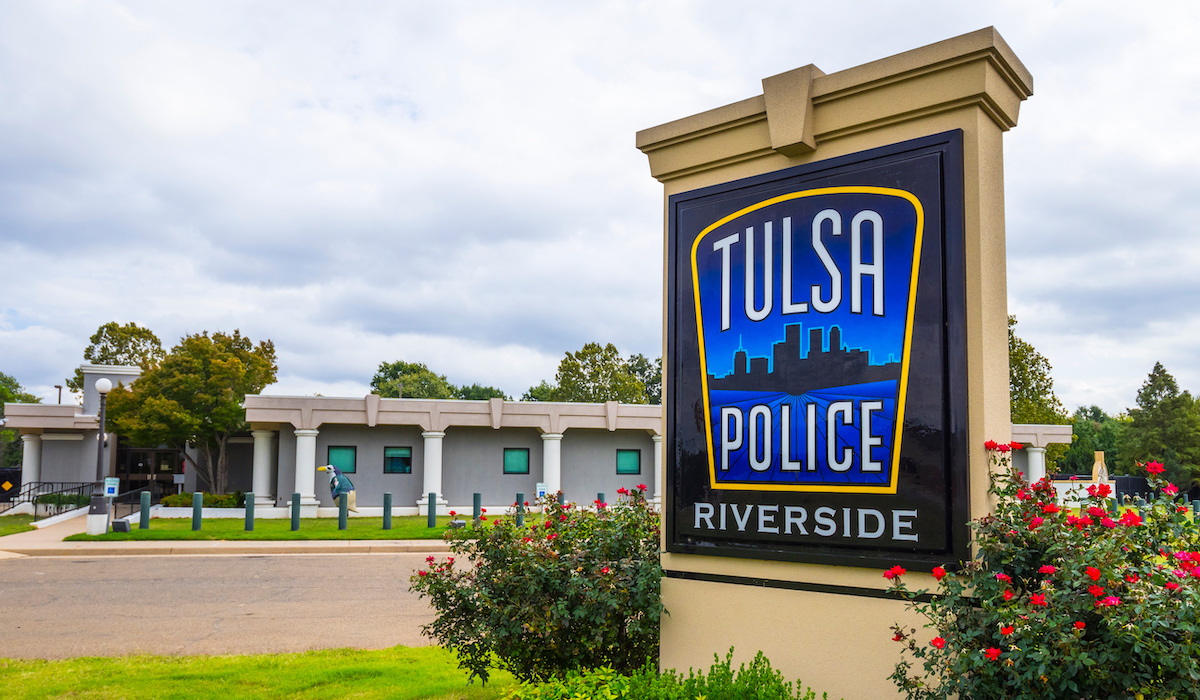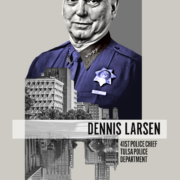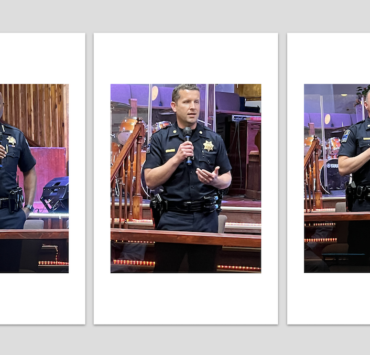Tulsa Police Chief Wendell’s Franklin’s recent high profile appearances have refueled a debate about diversity in the Tulsa Police Department- or more accurately the lack of it.
By JOHN NEAL
Multiple studies have shown that North Tulsa and other marginalized communities lack trust in the Tulsa Police Department (TPD). The department performs poorly on a wide array of police equality indicators. One significant contributing cause is a dramatic underrepresentation of minorities in the department. The department’s demographic statistics reflect Black and Hispanic employees are a small fraction of the Tulsa police workforce.
Chief Franklin readily acknowledged this in the last Tulsa Justice Theme forum, saying, “recruiting efforts are pretty dismal at this point.”
But the views among police experts differ strongly over what the root of the problem is. Franklin is the first Black chief of police in Tulsa.
Franklin has said one big reason for the dilemma is that the TPD has a bachelor’s degree requirement for officer employment. Chief Franklin made his remarks in a city-sponsored forum discussing equality indicators around the Justice Theme a year ago. The TPD’s top recruiter doubled down on this view in a recent interview with the Oklahoma Eagle. Captain Ohnesorge referred to the degree requirement as an added “funnel,” lowering the number of potential applicants.
But former Tulsa Police Chief Drew Diamond flatly disputes Franklin’s contention. Diamond does not believe that the degree requirement contributes to racial disparities in TPD recruiting and employment practices. “I don’t believe it is a barrier to hiring at all,” he said in an interview with the Oklahoma Eagle. Diamond has previously decried “racially biased policing” in Tulsa.
Diamond, who was also a training Director at the national Police Executive Research Department, points out Tulsa has had this education requirement for forty years says that there are ample potential candidates among minority groups who hold a bachelor’s degree.
What it boils down, is explained, is whether minority candidates they are attracted to a law enforcement career. If they are, they will seek out a police department with an inclusive atmosphere for minorities and is behaviorally “living up to its standards.”
One subject both Franklin and Diamond agree on is that higher educational attainment at employment makes for a more “well-rounded” officer and that a more diverse workforce is critical to the success of the Tulsa department.
Disparities Remain
Racial and other disparities in the police workforce composition have not changed in recent years. Only 13% of sworn officers are Hispanic or Black in a city where these groups comprise one-third of the total population. Black officers comprise 7% of the workforce and Hispanic 5%. Only 15% of officers are female. And a recently released police commissioned study (CNA) reported the disparity is even more significant in supervisory ranks.
Moreover, the Tulsa Police Department’s most recent Internal Affairs Report reflects a workforce heavily dominated by white men. Continuing to discuss his recruiting efforts in the same forum, Franklin noted that only 1% of police departments nationwide require a bachelor’s degree to become a sworn officer in the police department. Nationally 80% of departments require only a high school diploma or GED as a minimum standard. Less than a quarter of the Black or Hispanic populations have a bachelor’s degree.
Diverse Workforce Sought
Franklin and Ohnesorge point to other TPD’s efforts to create a more diverse workforce. For example, the department directly recruits HCBU graduating students, focuses on predominately Hispanic higher education institutions in New Mexico, and has developed a special Women in Policing recruiting program. Ohnesorge added that TPD is also working on expanding its “pre-hire” program, getting prospective candidates other work in the department before completing their bachelor’s degree requirements.
In recent years, the combined effects of lower salaries and higher educational requirements caused the TPD to hemorrhage officers to nearby communities, notably Broken Arrow and Owasso. In 2021, the problem became so acute that the city was forced to act. The city approved a 4% retention bonus for officers and entered into a new Fraternal Order of Police Agreement that raised starting officer salaries from $49,000 to $58,000, a bump of $9,000. Corresponding salary increases cost the city an additional $8 million through the ranks. But while salaries became competitive, the higher education threshold was left in place. And officers receive an additional $1,200 yearly for a bachelor’s degree. Still, sworn officers are down about 50 from pre-pandemic levels.
The TPD has two academy classes currently underway, consisting of 43 cadets. Compared to the current demographic mix within the department, the academies reflect little change in Black representation (4) and Hispanics (4). Female cadets numbered 13, while white males dominated at 27 or 63% of the total classes. Captain Ohnesorge, who leads recruiting efforts, told the Eagle, “Our gap continues to be with the Black community, but we are working diligently to close it.” All cadets have a bachelor’s degree.
Bachelor Degree Benefits
Many studies have been done on whether higher educational standards for police officers reap the intended behavioral rewards. Unfortunately, the studies’ results have been chiefly mixed or inconclusive in minority encounters and arrest rates. For example, one of the most prominent studies appeared in the 2014 Police Quarterly, authored by Jason Rydberg and William Terril. It concluded that police “higher education carries no influence over the probability of arrest occurring in a police-suspect encounter.” This appears to be anecdotally borne out in Tulsa, which has the highest educational standard. Nevertheless, Tulsa’s racial disparities in arrests meet or exceed national averages.
But the same study says the higher education requirement positively impacts officers’ abilities and performance and “significantly reduces the likelihood of force occurring in an encounter.”
In Tulsa, Blacks are almost three times more likely to be subjected to “advanced” or “intermediate” use of force by police than whites. These types of use of force are designed, by definition, to inflict bodily pain and possibly result in bodily injury. On May 20th, the Department of Justice issued new policies strengthening the use of force standards. And in a recent independent report for the TPD, CNA recommended seven improvements the department could make in its use of force policies.
As recent national events have shown, improper use of force is the spark that has ignited the flames of social injustice, leaving numerous communities in chaos, conflict, and suffering. A more diverse workforce in the Tulsa Police Department would pose a clear deterrent to that outcome.











